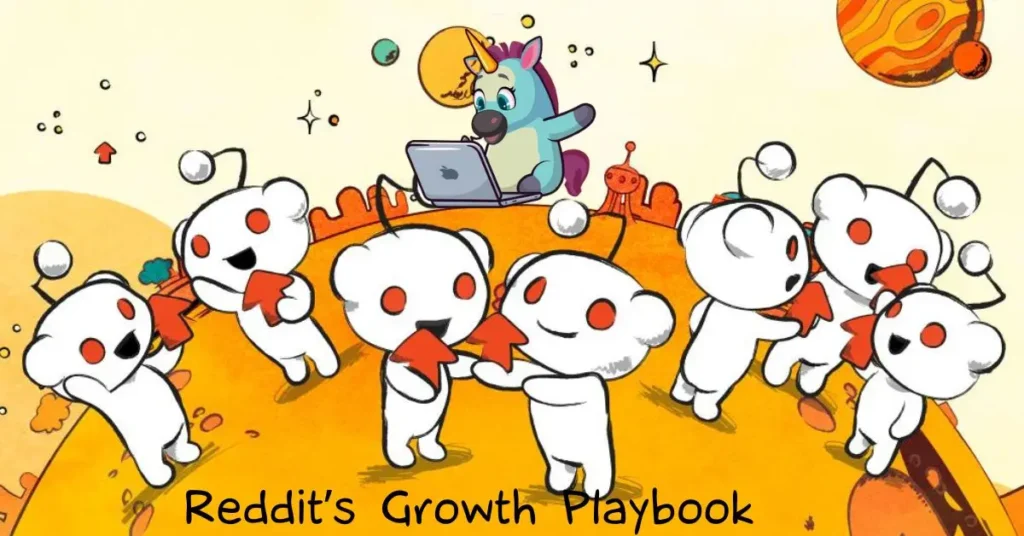
Hi there, unicorns! 👋
Today, we’re diving into Reddit’s growth playbook – the social news aggregator that revolutionized how we discover and consume content online.
From a simple idea to solve content discovery woes to a $6.5 billion IPO valuation, Reddit has grown into one of the world’s largest online communities with over 1 billion monthly active users across 100,000+ active subreddits.
But the path to the top wasn’t just about having a great product.
In this growth playbook, we’ll share the strategies and tactics that led Reddit to success, explore its impact on internet culture, and examine the challenges they faced – from moderation issues to monetization struggles.
Grab your upvotes, and let’s hit the front page!
The Idea💡
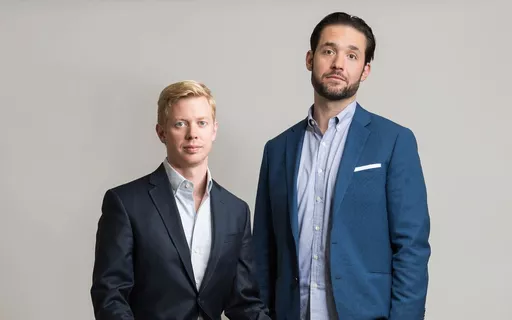
It was 2005 when two University of Virginia roommates, Steve Huffman and Alexis Ohanian, stumbled upon a game-changing concept.
During their senior year spring break, Paul Graham of Y Combinator was coming to Harvard to speak.
Steve wanted to go.
Alexis had never heard of Paul but he joined Steve on the train ride up to Cambridge, MA.
Inspired by Paul’s talk on how to start a startup, Steve got his book signed & Alexis boldly asked Paul out to dinner.
At dinner, they pitched their mobile food ordering app idea.
Paul suggested they apply to Y Combinator.
They prepped and pitched, but got rejected.
Dejected, they hopped on a train back to Virginia.
But while on the train, they got a call from Paul.
He said if they got off at the next stop and came back, Y Combinator would fund them.
The catch?
They had to ditch their original idea.
They agreed, got off at the next stop, and headed right back.
When they returned, Paul told them, “Don’t do mobile phones.”
Instead, he suggested they build a web app.
As they discussed, Paul crystallized the idea: “You guys need to build the front page of the internet.“
And thus, Reddit was born.
From a rejected mobile app to the “front page of the internet” – all because of a train ride and a last-minute pivot.
The Problem 😫

Before Reddit, the internet was a fragmented place for content discovery and discussion.
Users faced several challenges:
- Limited options for finding interesting content 🔍
- Difficulty in gauging content quality without diving in 🤔
- No centralized platform for diverse discussions 🗣️
- Niche communities were scattered across various forums 🌐
- Content creators struggled to reach wider audiences 📢
- Meanwhile, traditional media gatekeepers controlled what went viral 🚫
The internet sought a democratized platform where users could collectively curate and discuss content.
A place where niche interests could thrive alongside mainstream topics and where the community decided what was worthy of attention.
The MVP 🛠️
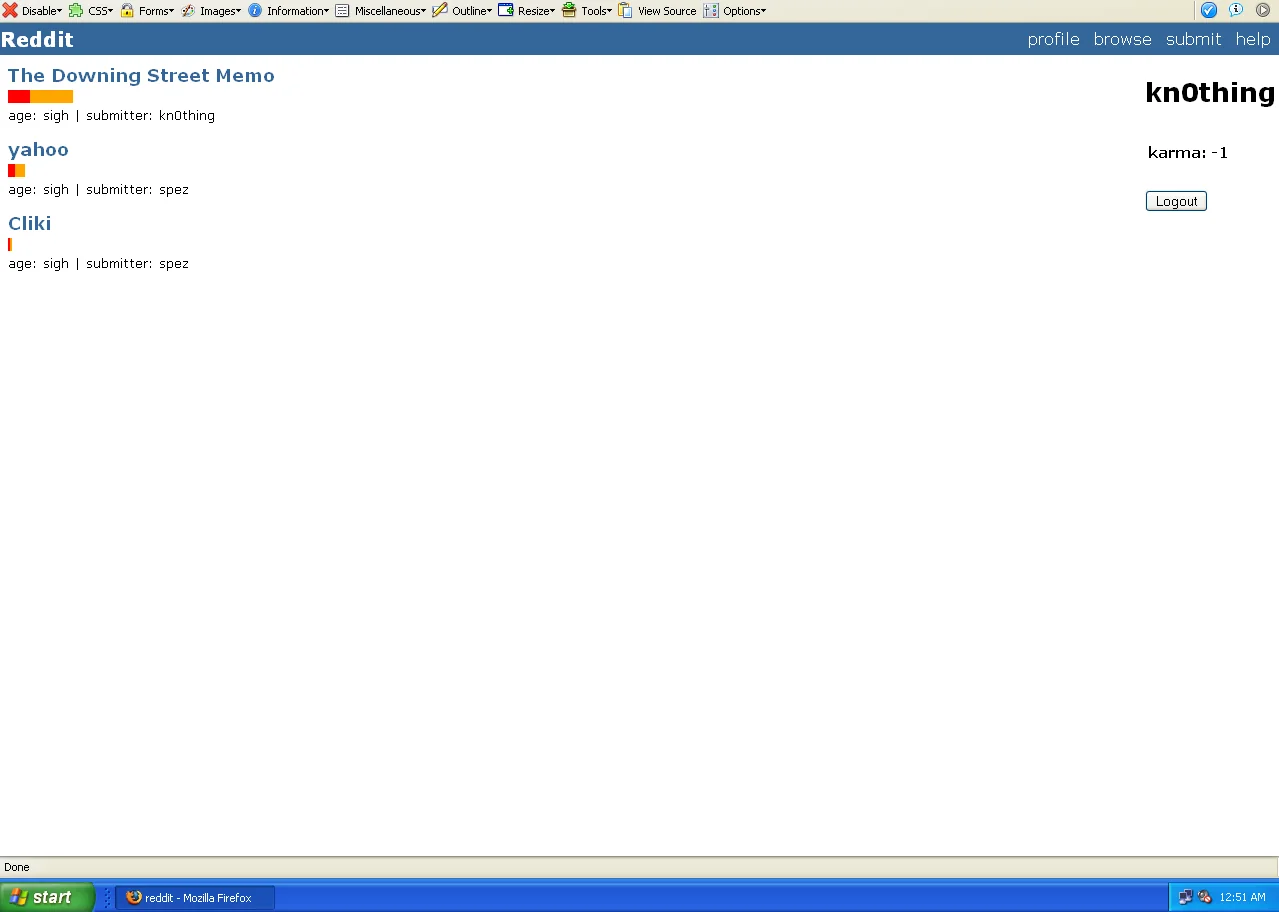
In 2005, Steve & Alexis moved to Cambridge after graduation.
With $12,000 from Y Combinator, they set out to build the front page of the internet.
They had been working for two weeks when Paul sent them a scathing email asking why they hadn’t launched yet.
A week later, Steve wrote back that the basic service was up and running.
On June 23, 2005, Reddit was live.
The initial version was bare-bones, built by Steve in Lisp in record time.
The MVP was simple:
- A list of submitted links
- Upvote and downvote buttons
- A basic ranking algorithm
There were no subreddits, no commenting system, and no embedded media.
But they did have Karma points from the very beginning, gamifying user participation.
To seed content, Alexis and Steve were the top posters themselves, creating fake accounts to give the illusion of activity.
By August, organic growth kicked in, and they no longer needed to artificially populate the site.
This lean MVP allowed Reddit to launch fast and iterate based on real user feedback, setting the stage for its future evolution.
Product-Market Fit 🎯
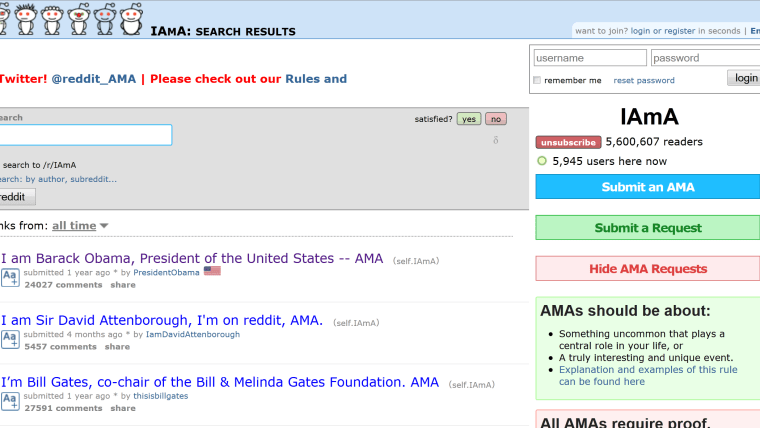
Reddit’s journey to product-market fit was a gradual evolution from a simple link-sharing site to a thriving online community.
The initial version of Reddit gained traction among tech-savvy early adopters, especially those interested in programming and technology.
But the real breakthrough came with two key features:
- Comments: Introduced in late 2005, this feature transformed Reddit from a link-sharing site to a discussion platform.
- Subreddits: Launched in March 2008, this allowed users to create topic-specific communities.
These features sparked exponential growth:
- By late 2006, Reddit had grown enough to be acquired by Condé Nast for $10 million.
- In 2008, Reddit hit 100 million monthly pageviews.
- By 2011, just 16 months after launch, Reddit reached 1 million monthly active users and 70,000 daily readers.
The “AMA” (Ask Me Anything) concept, which started organically in 2009, became a cultural phenomenon, attracting high-profile participants and mainstream attention.
These milestones signaled that Reddit had found its product-market fit:
A platform where users could discover, discuss, and create content in self-organized communities.
Positioning & Branding 🎨📐
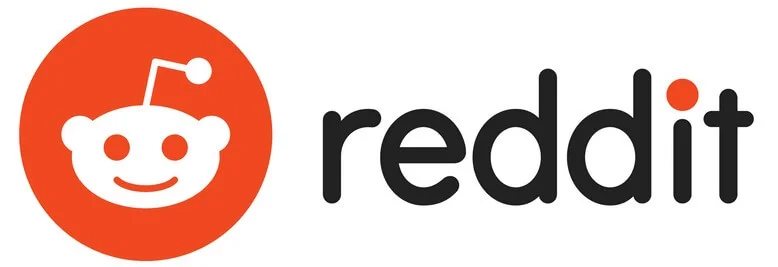
In the beginning, Reddit’s approach to positioning and branding was… well, not to have one. 😅
The founders didn’t care much about fancy logos or catchy slogans.
Their bare-bones, text-heavy design was a far cry from the polished look of other social platforms.
But this “anti-branding” ironically became Reddit’s brand.
This lack of focus on aesthetics attracted a specific type of user:
- Tech-savvy early adopters 🖥️
- People who valued substance over style 🧠
- Those who enjoyed a bit of internet “insider” culture 🕵️♂️
Reddit’s alien mascot, Snoo, was a simple doodle Alexis drew during a boring class.
It became an accidental icon, embodying the platform’s quirky, homegrown vibe.
Their tagline, “The front page of the internet,” perfectly encapsulated Reddit’s mission without trying too hard.
This authentic, no-frills approach positioned Reddit as the antithesis of overly curated social media.
It became a place where content was king and community was queen.
The result?
A fiercely loyal user base that felt like they were part of an exclusive club – even as the site grew to millions of users.
Pricing 💰📊
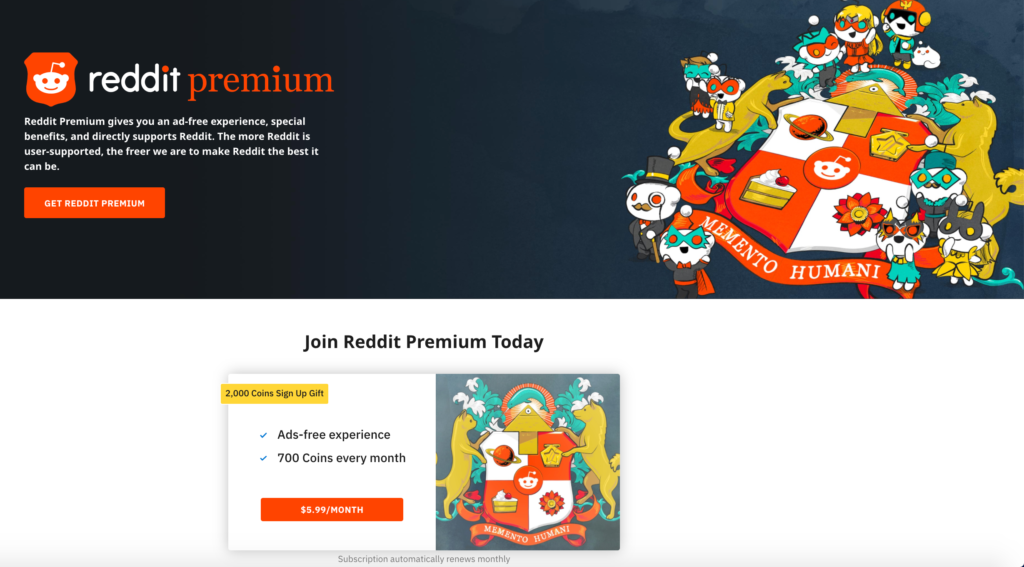
Reddit’s pricing strategy evolved as they grew, focusing on creating value for both users and advertisers.
From the start, Reddit used a simple model:
- Users access the platform for free
- Reddit generates revenue primarily through advertising
In 2010, they introduced Reddit Gold (later rebranded as Reddit Premium), a subscription service offering an ad-free experience and exclusive features.
Reddit’s primary revenue sources:
- Advertising (98% of 2023 revenue)
- Premium subscriptions
- Reddit Coins for virtual awards
In 2023, Reddit reported $804 million in revenue, with a 76% gross margin.
They also began charging for API access, opening up a new revenue stream.
This balanced approach has allowed Reddit to scale rapidly while maintaining a free core experience for users.
Acquisition 🚀
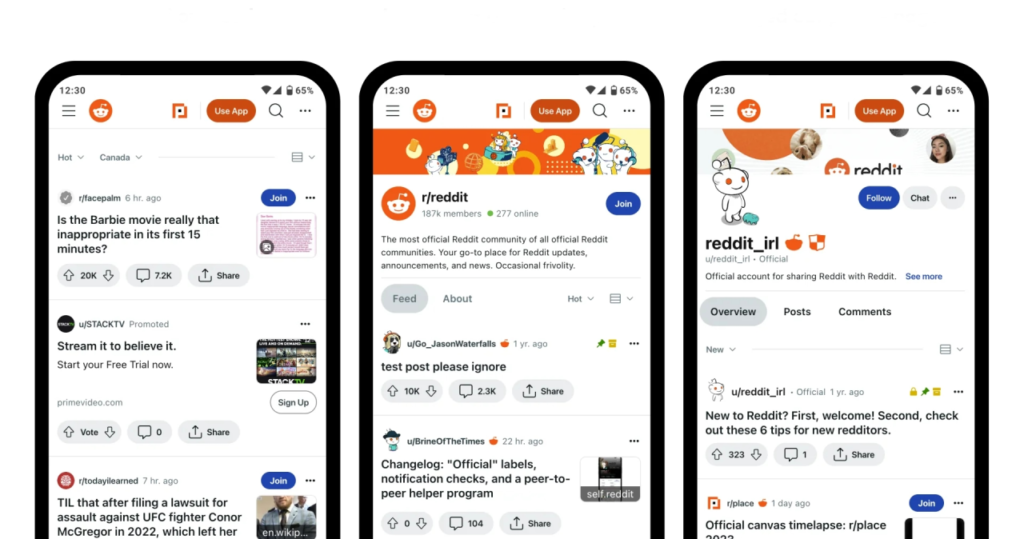
Reddit’s growth strategy is all about organic growth and community building:
- Organic Growth: Reddit’s primary growth engine has always been word-of-mouth. The platform’s unique content and communities naturally attract new users and keep them coming back.
- SEO Domination: Reddit’s user-generated content ranks exceptionally well in search results. They’ve mastered the art of programmatic SEO, creating thousands of indexed pages for various topics and discussions.
- Community Engagement: Reddit’s focus on empowering moderators and community leaders has created a network of passionate advocates who help grow the platform.
- AMAs (Ask Me Anything): These popular Q&A sessions with celebrities, experts, and interesting personalities have been a major draw, often going viral and attracting new users.
- Cross-Platform Presence: Reddit maintains active accounts on other social platforms, sharing popular posts and AMAs to attract users from these networks
- International Expansion: Reddit has been focusing on growing its user base outside the US, including launching in new languages and creating localized experiences.
- Google Search Integration: A recent partnership with Google has increased Reddit’s visibility in search results, driving significant traffic growth.
This organic approach has helped Reddit grow from a niche platform to a global community with over 1 billion monthly active users as of 2024.
The key to their success?
Always staying true to their core value of user-driven content and communities.
Growth Loops 🔄🚀
Reddit’s growth is supercharged by one of the most powerful growth loop models:
User Generated Content (UGC).
Here’s how it works:
- Users create content: Posts, comments, subreddits, upvotes, downvotes, and awards.
- This content generates new pages and top search rankings.
- New users discover Reddit through search results.
- These new users contribute more content, fueling the cycle.
Why is this so effective?
– SEO is a winner-takes-all game, with 60% of traffic going to the top 3 results.
– UGC provides Reddit with an endless supply of fresh, diverse content at zero cost.
– Each new piece of content potentially attracts more users.
Reddit supercharges this loop through:
– Karma system: Gamifying participation and incentivizing quality contributions.
– Subreddits: Allowing niche communities to flourish, attracting passionate users.
– AMAs: High-profile Q&As that often go viral, drawing in new users.
This UGC growth loop has been key to Reddit’s success, helping it grow from a small community to a platform with over 1 billion monthly active users.
It’s a self-reinforcing cycle where more users lead to more content, which leads to more visibility, which leads to… you guessed it, more users!
Activation 🎬🔥
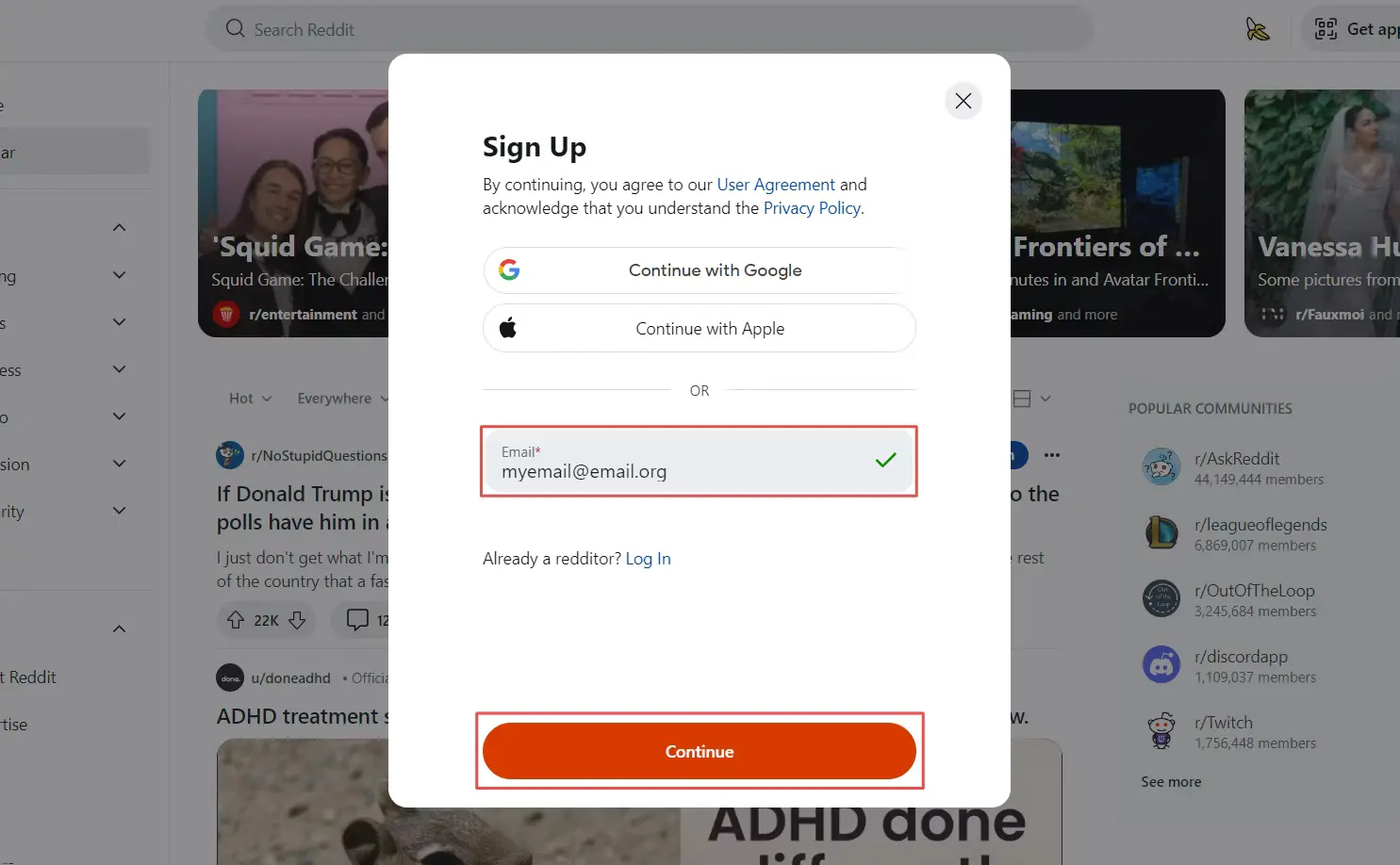
For Reddit, activation is beautifully simple.
As a social media platform, not a SaaS product, the barriers to entry are intentionally low.
The key activation steps are:
- Discover content (often through search engines)
- Create an account (just an email needed)
- Join communities for free (subreddits)
- Engage (upvote, comment, or post)
Reddit’s “aha moment” comes when users find a subreddit that resonates with their interests.
The platform’s strength lies in its diverse communities, from niche hobbies to global topics.
Unlike complex SaaS tools, Reddit doesn’t require tutorials or onboarding.
This simplicity is a key driver of Reddit’s massive user base.
Retention 🔒❤️
Reddit’s retention game is strong, with a mind-blowing 40% of new users coming back within the first year.
That’s no small feat, especially when you consider how infrequently people typically engage with most websites.
So, how are they pulling this off?
It’s all about creating a community vibe and a sticky experience that keeps users hooked:
- Diverse Content: With over 100,000 active subreddits, there’s always something new to discover.
- Community Engagement: Users form connections and feel a sense of belonging in niche communities.
- Gamification: The Karma system rewards active participation, encouraging users to return and contribute.
- Personalized Feed: Reddit’s algorithm serves up content tailored to each user’s interests and browsing history.
- Daily Rituals: Many users make checking Reddit part of their daily routine, like a digital newspaper.
- Mobile App: A smooth mobile experience keeps users engaged on-the-go.
- Notifications: Timely alerts about responses to posts or comments drive re-engagement.
This multi-faceted approach turns casual browsers into die-hard Redditors, creating a loyal user base that keeps coming back for more.
Referral 📣🎉
Reddit doesn’t have an official referral program.
But as a social media platform, it’s mastered the art of organic, word-of-mouth growth.
Here’s how Reddit drives referrals:
- Content Sharing: Users frequently share Reddit posts on other platforms, driving traffic back.
- “Source: Reddit” Culture: Reddit often breaks news or viral content, credited across the internet.
- Community Invites: Users invite friends to join specific subreddits they enjoy.
- Meme Culture: Reddit-originated memes spread across the web, piquing curiosity.
- Media Coverage: Newsworthy Reddit threads often get mainstream media attention.
This organic referral system has proven incredibly powerful, turning Reddit into a cultural phenomenon without traditional referral incentives.
Challenges 😰
Reddit’s journey hasn’t been all upvotes and viral AMAs.
They’ve faced some serious turbulence along the way:
Management Musical Chairs:
The leadership saga at Reddit reads like a soap opera script.
From the sudden departure of CEO Yishan Wong over an office relocation dispute to the controversial tenure of Ellen Pao, Reddit’s top spot has been a hot seat.
Pao’s exit, following community backlash over content policy changes and employee terminations, led to the return of co-founder Steve Huffman as CEO in 2015.
Acquisition Rollercoaster:
In 2006, just a year after launch, Reddit was acquired by Condé Nast.
While this provided resources, it also brought corporate oversight that didn’t always mesh with Reddit’s freewheeling culture.
The company was spun out as an independent entity in 2011, but the years under Condé Nast had a lasting impact on Reddit’s growth and direction.
The Digg Rivalry:
For years, Reddit played second fiddle to Digg in the social news space.
As TechCrunch put it in 2008, “it is not easy being No. 2.”
While Digg boasted millions of unique monthly visitors, Reddit was still struggling to hit the one million mark.
This underdog status pushed Reddit to innovate and focus on community-building.
Content Moderation Nightmares:
As Reddit grew, so did its challenges with content moderation.
From controversial subreddits to issues with hate speech and misinformation,
Reddit has had to walk a tightrope between free speech and responsible platform management.
The banning of certain subreddits, like r/The_Donald in 2020, sparked intense debates about censorship and platform neutrality.
Competition from Social Giants:
As Reddit grew, it found itself competing not just with Digg, but with social media giants like Facebook and Twitter.
Keeping users engaged in an increasingly crowded social media landscape has been an ongoing challenge.
These challenges have shaped Reddit’s evolution, forcing the platform to adapt, innovate, and sometimes make tough decisions.
But like a cat with nine lives, Reddit has managed to land on its feet time and time again. 🐱
Lessons Learned 🎓
Lesson 1: Community is King
Reddit didn’t just create another content aggregator; they built a platform where users could create and moderate their own communities.
The takeaway? Empower your users to take ownership. When people feel they’re part of something, they’ll invest time and energy into making it succeed.
Lesson 2: User-Generated Content is Gold
Reddit tapped into the power of its users to create an endless stream of fresh, diverse content.
The takeaway? Your users can be your best content creators and marketers. Design systems that encourage and reward user contributions.
Lesson 3: Simplicity Wins
Reddit’s initial MVP was bare-bones but functional. They launched fast and iterated based on user feedback.
The takeaway? Don’t wait for perfection. Launch quickly with core features and improve based on real user input.
Lesson 4: Embrace the Pivot
Reddit’s original idea was rejected by Y Combinator, but they pivoted and created something revolutionary.
The takeaway? Be flexible and open to new ideas. Sometimes, your first idea isn’t your best idea.
Lesson 5: Culture Matters
Reddit’s unique culture, from its quirky alien logo to its commitment to free speech, has been both a blessing and a challenge.
The takeaway? Define and maintain a strong company culture. It can be a powerful differentiator and attractor for both users and employees.
Lesson 6: Moderation is a Balancing Act
Reddit’s struggles with content moderation highlight the challenges of balancing free speech with responsible platform management.
The takeaway? With great power comes great responsibility. As your platform grows, be prepared to make tough decisions about content and community management.
Lesson 7: Stay True to Your Roots
Despite corporate acquisitions and leadership changes, Reddit has maintained its core identity as “the front page of the internet.”
The takeaway? Consistency in your core mission can be key to enduring appeal, even as you evolve and grow.
And there you have it, unicorns! 🦄
Reddit’s journey from a dorm room idea to a $6.5 billion IPO is one for the books.
They’ve revolutionized not just how we consume content, but how we build and participate in online communities.
From their genius UGC growth loop to their laser focus on user empowerment, Reddit’s playbook is packed with growth lessons we can all learn from.
So, whether you’re building the next big thing in tech or just looking to level up your product game, take a page (or seven) from Reddit’s book.
Now, don’t keep all this juicy knowledge to yourself – share the love and spread the growth gospel!
Got any Reddit experiences of your own?
Drop ’em in the comments! 🚀💡

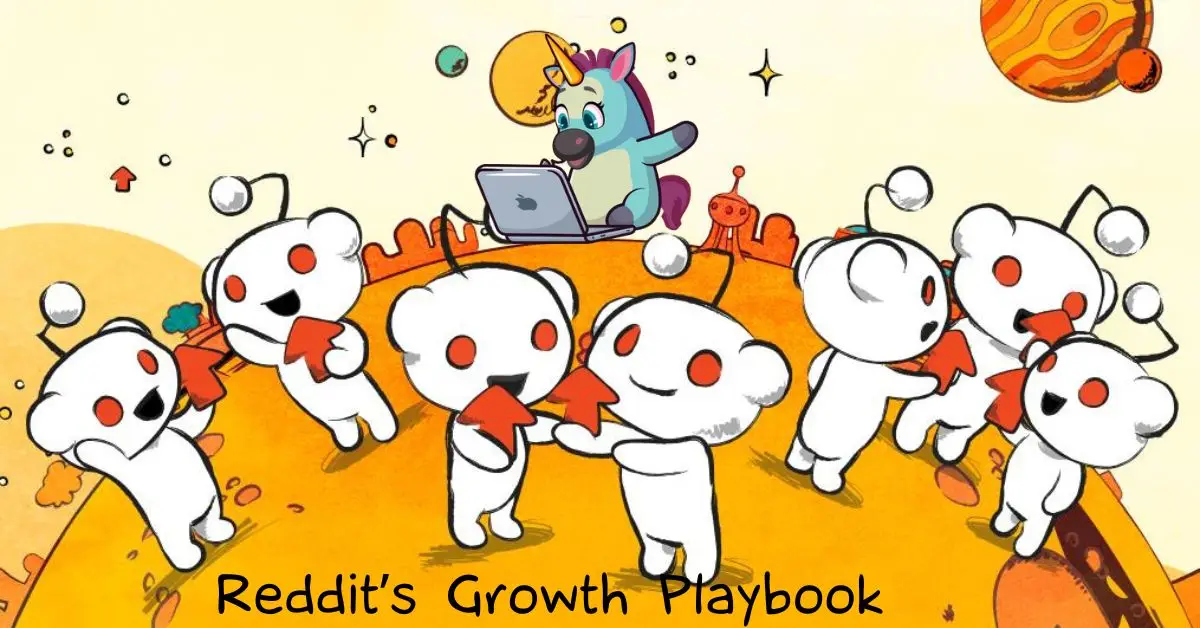
Leave a Reply